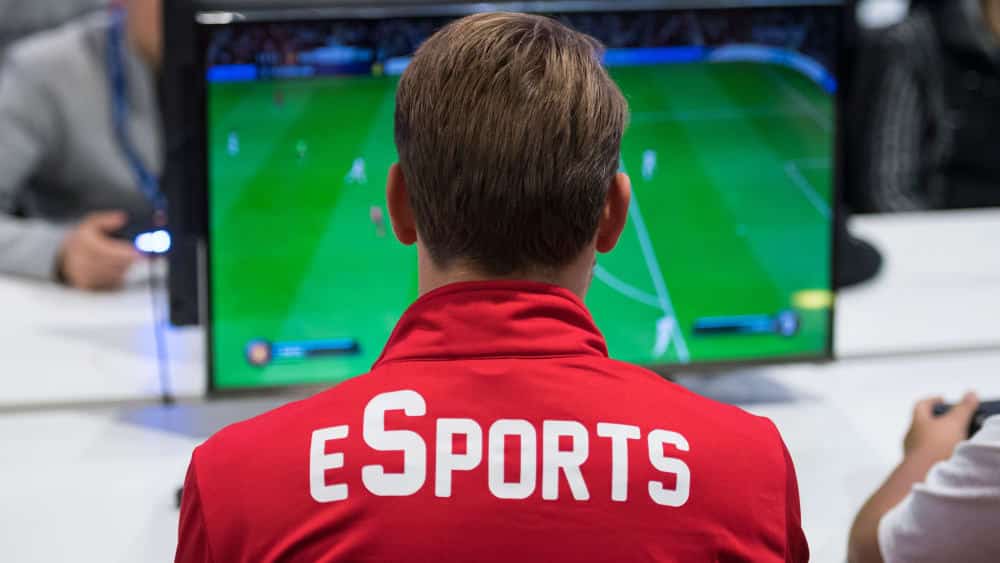To be like football for once – recognised as a sport and non-profit. That’s what German eSports would like. No wonder, given the many advantages, but there are also headwinds.
“We will make eSports non-profit”, promise the SPD, Bündnis 90/Die Grünen and FDP in the coalition agreement of 24 November 2021. Most people will read over the small sentence, but for the scene it could trigger a huge change.
eSport means competitive gambling, with everything that goes with it: with competitive pressure, with spectators and, of course, with money. This can hardly be compared to a game of “FIFA” on the couch at home, but should it therefore be officially considered a sport? Politicians, the eSports scene and the sports landscape have been discussing this for several years – so far without consensus.
Already in 2018, the agreement of the governing parties included the recognition of eSports. In talks and discussion rounds, those responsible signalled goodwill – the potential of the scene was recognised – but in the decision-making process, the federal government hid behind the German Olympic Sports Confederation (DOSB) and its positioning: eSport is not a sport.
The justification is based on several factors. The danger of addiction and thus the health risk are too high, the scene is too commercially oriented and many games glorify violence. Thus, eSports does not fit the ethical principles of the federation. Another decisive factor is the lack of “self-motorised movements that determine the type of sport”. Or in short: eSportsmen move too little, according to the DOSB. Admission to the association is therefore ruled out because it would distort the existing image of sports.
ESBD sees advantages of eSports
The eSport-Bund Deutschland (ESBD) positions itself contrary to the ideals of the DOSB. The representative of organised eSports is pushing for recognition. Not only because this would improve the social position, but also because of financial advantages: If a discipline like eSports is recognised as a sport, its clubs are considered non-profit under German law and are allowed to accept donations, can better compensate volunteers and have to pay less tax.
Although the federal government could overrule the DOSB in an amendment to the tax code, as an established institution, the association’s word carries a lot of weight. Accordingly, it should be clear that the sentence in the new coalition agreement is not a guarantee.
Professor Dr. Ingo Froböse of the Cologne Sports University supports the opinion of the ESBD. He argues with the high number of precise movements – an eSportsman manages up to 400 per minute at the mouse and keyboard. This is an “extreme performance and requires more hand-eye coordination than sports like table tennis”. Froböse also found out in the course of his research that the psychological strain of a professional gamer is on the same level as that of a racing driver. That is why he is in favour of funding.
In addition to Froböse’s findings, the ESBD also puts forward its own arguments. The association always emphasises the competitive spirit and the potential of eSports: it would increase media competence, help prevent addiction, promote youth and bring an economic boost. In order for this potential to unfold, the non-profit status associated with the recognition is instrumental.
ESBD Vice President Christopher Flato: “The club structure is the backbone in value development for youth. Values such as integrity and fair play are taught and it would be a great failure to deny the eSports world these structures. That is why we are calling for non-profit status for eSports-related clubs.”
The last sub-sentence points to another advantage of non-profit status: legal certainty for sports clubs. For in addition to pure eSports clubs, other clubs have increasingly ventured into the digital world in the past decade. They want to be innovative. Without recognition, however, they risk losing their non-profit status – an existential risk for smaller clubs.
Professional clubs are therefore outsourcing their eSports departments. eSports clubs have found a diversion to non-profit status via youth sponsorship. However, this limits them to young players, which is why this is not seen as a long-term alternative.
A solution can only come from the federal government. If it recognises eSports as a sport – independently of the DOSB – this would go hand in hand with non-profit status. At the same time, it would soften the idealistic concept of sport.
But there would also be a second possibility: if the government were to include eSports separately in the tax code, the clubs would be helped without overriding the DOSB. This would not give eSports the desired recognition as a sport, but it would still be considered a non-profit sport.





